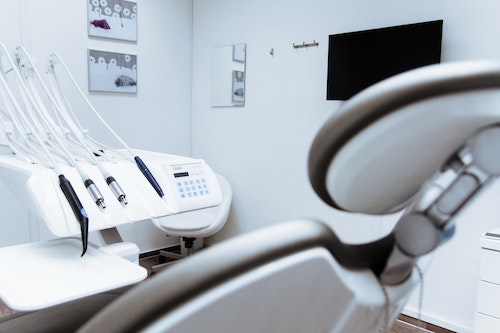European Health Systems: Analyzing the Preparedness and Response
As the world grapples with the challenges posed by the COVID-19 pandemic, European health systems have been put to the test, requiring an examination of their preparedness and response. Health professionals, policymakers, and concerned citizens play crucial roles in understanding these systems and determining their effectiveness. In this blog post, we delve into the factors that contribute to the preparedness of European health systems, evaluate their response during the pandemic, and highlight the lessons we can learn.
Preparedness: A Strong Foundation for Effective Response
Preparedness sets the stage for effective responses when faced with unforeseen healthcare crises. European health systems have invested significant effort in bolstering their preparedness, focusing on key elements such as infrastructure, healthcare workforce, and strategic planning.
Firstly, the infrastructure of European health systems has been fortified to handle potential surges in patient numbers. The establishment of well-equipped hospitals, expansion of intensive care units (ICUs), and investment in advanced medical technologies have contributed to an enhanced level of preparedness across the continent.
Secondly, ensuring an adequate and skilled healthcare workforce is vital for any robust system. European health systems have prioritized the recruitment and training of healthcare professionals, ensuring a competent and diverse workforce. Additionally, ongoing professional development programs and collaborative networks have further strengthened the system’s preparedness.
Lastly, strategic planning plays a pivotal role in anticipating and managing crises. European health systems have made strides in formulating comprehensive response plans, which involve the coordination of various stakeholders, timely communication, and resource management. These strategic efforts have provided a strong foundation for mounting an effective response during unprecedented times.
Response: Strong Points and Areas for Improvement
When a crisis hits, the response of health systems becomes paramount. European health systems have displayed both strengths and areas for improvement in their response to the COVID-19 pandemic.
One of the notable strengths has been the dedication, expertise, and resilience demonstrated by health professionals across the continent. Doctors, nurses, and other healthcare workers have exhibited unparalleled commitment, working tirelessly to diagnose, treat, and care for COVID-19 patients. Their selflessness and unwavering dedication are commendable and have been critical in saving lives.
Furthermore, the ability of European health systems to quickly adapt and innovate in the face of overwhelming challenges is commendable. This adaptability is exemplified by the establishment of field hospitals, rapid deployment of telemedicine services, and repurposing of resources to meet the emerging needs. These responses highlight the flexibility and resourcefulness of European health systems.
However, the pandemic has also shed light on certain areas where improvements can be made. The coordination and sharing of information between European countries have sometimes proven challenging, leading to inefficiencies and delays in response efforts. While initiatives such as the European Centre for Disease Prevention and Control (ECDC) exist to facilitate cooperation, there is room for stronger collaboration and information sharing during future crises.
Another aspect to consider is the preparedness of European health systems to address the mental health consequences of the pandemic. The psychological impact on both healthcare workers and citizens necessitates an increased focus on mental healthcare services. Adequate resources and support systems should be established to ensure the holistic well-being of those affected.
Lessons Learned and the Path Forward
The COVID-19 pandemic has been a transformative experience, providing valuable lessons for all stakeholders involved. European health systems, health professionals, policymakers, and concerned citizens must collectively address the gaps highlighted during this crisis and strengthen their preparedness and response.
The importance of international collaboration and information sharing cannot be overstated. European health systems should leverage existing platforms, such as the ECDC, to foster stronger coordination and harmonization of response efforts. By learning from each other’s experiences and best practices, these systems can collectively enhance their response mechanisms during future health crises.
Furthermore, healthcare policymakers should prioritize investment in research and development to anticipate and combat potential future threats. This includes strengthening healthcare infrastructure, ensuring an adequate supply chain of medical equipment and supplies, and promoting innovation in telemedicine and digital health technologies.
Lastly, involving concerned citizens in preparedness efforts is crucial. Public awareness campaigns, education programs, and community engagement initiatives play a pivotal role in empowering individuals to protect themselves and support the broader healthcare system. By fostering a sense of shared responsibility, European health systems can build a resilient society capable of withstanding healthcare challenges.
In conclusion, the preparedness and response of European health systems during the COVID-19 pandemic highlight both strengths and areas for improvement. While the investment in infrastructure, competent healthcare workforce, and strategic planning have laid a strong foundation for effective response, challenges in coordination and mental health support require attention. By embracing lessons learned and collectively addressing these gaps, European health systems can ensure enhanced preparedness and response mechanisms, safeguarding the health and well-being of their citizens in the face of future crises.



